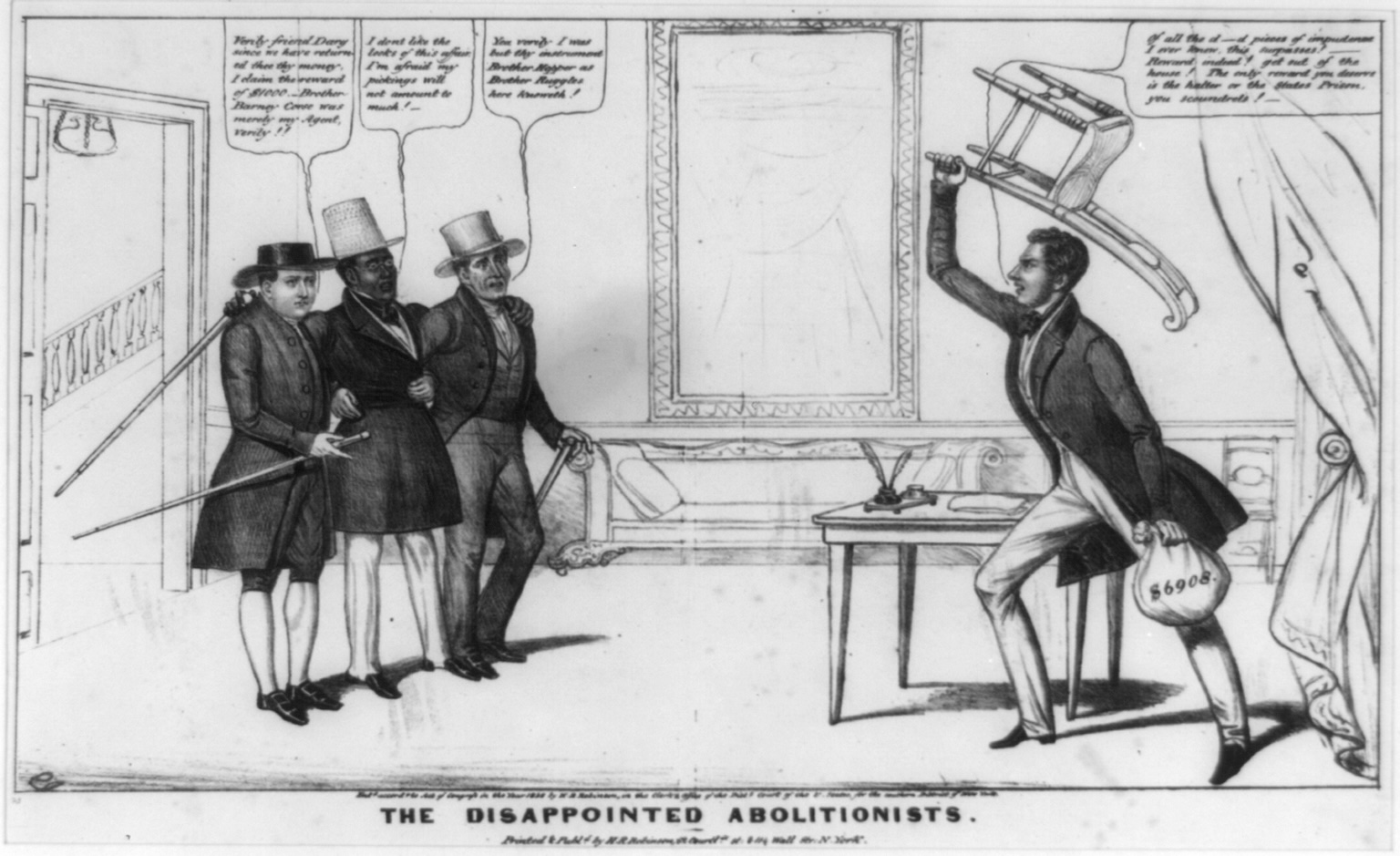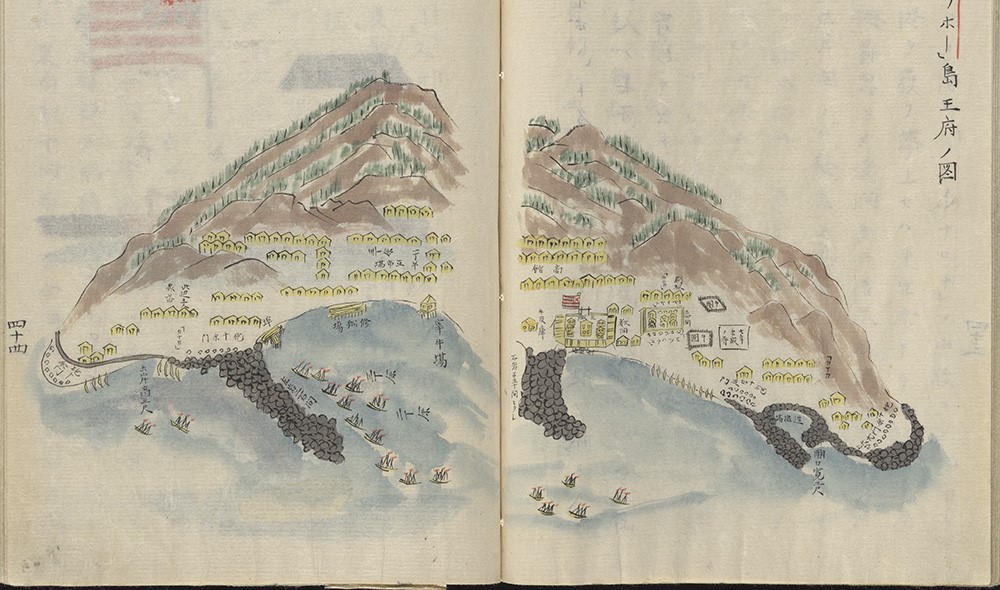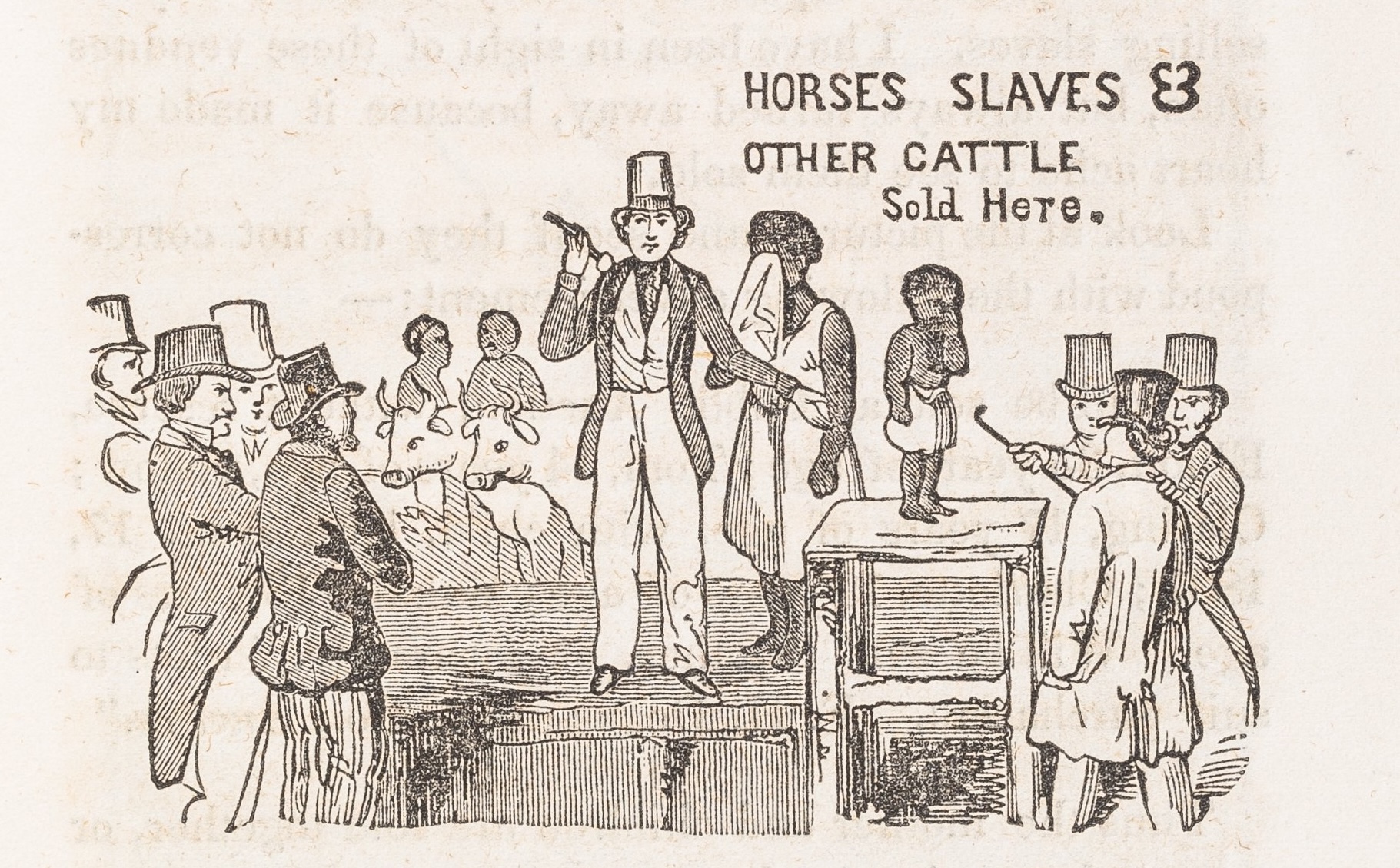Reading eighteenth-century novels in company with the American revolutionaries
“What would the founders have thought?”
It’s a favorite question for constitutional lawyers, legal scholars, and politicians, and it can be a crowd-pleasing parlor trick for legal historians: take a modern-day controversy, feed it into the chattering machine of late-eighteenth-century opinion, and see what comes out. Uncertain what to think about international agreements? See George Washington’s Farewell Address: “[S]teer clear of permanent alliances with any portion of the foreign world.” Frustrated by government inaction? Consider Thomas Jefferson’s injunction: “I hold it that a little rebellion now and then is a good thing, and as necessary in the political world as storms in the physical.” Feminism? Abigail Adams to John Adams: “Remember the Ladies.” Whatever the topic, the generation of Americans responsible for the Revolution, Declaration of Independence, and Constitution seems to have an answer. The situation calls to mind Adam Gopnik’s description of the place of Alexis de Tocqueville in modern political commentary: “There is no bore like a Tocqueville bore, no game quite so easy to play as the game of saying that Tocqueville saw it all before it happened.” No game quite so easy, that is, except for the game of attributing superhuman perception and wisdom to the founders.
But, as even these few examples demonstrate, there is no single answer to the question of what the founders would have thought. Washington, Jefferson, Adams (Abigail or John)—all have a clear claim on membership in the founders’ club, and yet divining a unitary opinion from their writings on law, politics, economics, or society is an impossible task. The thoughts are too disparate, the lives too long, the situations encountered during those lives too varied and messy to support firm conclusions about what even this relatively small group of individuals thought about their own time, let alone ours. Instead, we are thrown back onto specifics: how Washington’s youthful service as an officer of the British Empire colored his perception of international conflict; how Jefferson’s reactions to the French Revolution influenced his views on the partisan conflict of the early American republic; how the Adamses’ shared Puritan background helped to shape their intellectual partnership. In other words, we leave the domain of retrospective prediction and enter the realm of history.
If the outputs of the founding generation are speculative and subject to debate, perhaps the better, more concrete questions to ask concern the inputs. In order to begin to answer the lawyer’s question of what the founders thought about a given issue, we need first to answer the historian’s question of how personal stories, beliefs, and external social and political conditions combined to create those thoughts. The founders were not simply producers of theory; they were avid consumers of words and ideas. And those ideas came not only from the political tracts and works of philosophy that we typically envision Jefferson, John Adams, and their contemporaries reading but also from fiction. Along with their Locke, Montesquieu, and Rousseau, late-eighteenth-century Americans read novels—lots of them—although few, if any, of those novels were the work of American authors.
This search for the sometimes-overlooked literary grist that helped feed the founding generation’s intellectual mill led my colleague Jake Gersen and me to attempt a pedagogical experiment in early 2007. With a dozen law students, we would read a selection of novels that members of the founding generation had read. Fortunately for us, the University of Chicago Law School offers a forum for classes that might seem unorthodox in comparison to the usual legal curriculum: Greenberg Seminars, in which pairs of faculty members lead small groups of students in a series of discussions held at the professors’ homes. Our seminar, The Founders’ Fiction, promised students an opportunity to “read the novels that the founders read with an eye toward better understanding the literary backdrop against which they crafted their legal and political analysis,” as the course description put it.
The description was largely aspirational, since Jake and I hoped the novels would yield insights into the founders’ thought but had little sense going into the seminar of what those insights would be. But that was the fun of it: the seminar would be a shared scholarly enterprise between the students and us. In contrast to the closely controlled Socratic method used in many law-school classes, in which (ideally) the professor leads students from the specific facts of a given case to general legal principles by constantly challenging the students’ efforts to articulate those principles, this seminar would ask open-ended questions. Does literature matter to politics and law? The very premise of the seminar suggested that the answer to this question is yes. But how does it matter? And, more precisely, how did literature matter to late-eighteenth-century American politics and law? We didn’t know what the answer to this question would be—an exhilarating, if ever so slightly worrisome, position for any teacher.
The first order of business was to select the novels. To guide us in the process, and to ensure that the books we chose were ones that the founders had read, we turned to a letter that Thomas Jefferson wrote to his prospective brother-in-law, Robert Skipwith, in August 1771. Skipwith had asked Jefferson to provide a list of books that would be the basis of his library. “I would have them suited to the capacity of a common reader who understands but little of the classicks and who has not leisure for any intricate or tedious study,” Skipwith wrote to Jefferson. “Let them be improving as well as amusing.”
In response to Skipwith’s request, Jefferson drafted a list comprising 148 titles, which he broke down into nine groups: “Fine Arts”; “Criticism on the Fine Arts”; “Politicks, Trade”; “Religion”; “Law”; “History, Antient”; “History, Modern”; “Natural Philosophy, Natural History &c.”; and “Miscellaneous.” Of these categories, the most numerous by far was “Fine Arts,” which included seventy-five titles, among them plays by dramatists such as Molière and Dryden as well as the poetry of Homer, Virgil, and Pope. Having exceeded Skipwith’s proposed budget of “about five and twenty pounds sterling, or if you think proper … thirty pounds” by some seventy pounds, the biblio-generous Jefferson excused the inclusiveness of his list by saying he “could by no means satisfy myself with any partial choice I could make” and that he had therefore “framed such a general collection as I think you would wish and might in time find convenient to procure.”
Most striking to modern eyes is the prominence of fiction on the list. More than a third of the books listed under “Fine Arts” are works of fiction. All are by European authors. They include classics that are still read today, such as Cervantes’s Don Quixote, Henry Fielding’s Tom Jones, and Chaucer’s Canturbury Tales, as well as less familiar works more likely to be found on the syllabus of a course on eighteenth-century English literature than on the shelf at Barnes and Noble, such as Tobias Smollett’s Peregrine Pickle and Frances Sheridan’s Memoirs of Miss Sidney Bidulph. Along with the works of philosophy and law that one would expect to see on a founder’s reading list (Xenophon’s Memoirs of Socrates, Blackstone’s Commentaries on the Laws of England), Jefferson’s list made the case that a gentleman’s library ought to include literary fiction. “[T]he entertainments of fiction are useful as well as pleasant,” Jefferson wrote to Skipwith. “[E]verything is useful which contributes to fix in the principles and practices of virtue.”
Suppressing the temptation to assign one of the list’s more obscure novels (would the students really be able to track down copies of John Langhorne’s Solyman & Almena: An Oriental Tale?), Jake and I chose four works from among Jefferson’s recommendations: Laurence Sterne’s Tristram Shandy; Oliver Goldsmith’s Vicar of Wakefield; and the sensational duo of 1740s literary London, Samuel Richardson’s Pamela and its parody Shamela, by Henry Fielding.
The text for the first meeting of the seminar was Tristram Shandy—the longest and arguably the most influential of our selections. We began the session by distributing copies of Jefferson’s book list and the accompanying letter to Skipwith. When the students expressed surprise at how much of the list was devoted to fiction, we knew we were off to a promising start, especially given the frequency with which the phrase “I don’t read fiction” is uttered in law schools. Our theory of the seminar, we explained, was that by reading novels the founders had read, we might be able to trace some influences for the ideas everyone discusses in law school, using a different body of primary sources from those on which such discussions tend to focus. And perhaps as important would be the experience of reading the books—of sitting in a group, lawyers and soon-to-be lawyers all, reading eighteenth-century literature—and so in some way drawing closer to the “bourgeois public sphere” that the philosopher Jürgen Habermas describes as mediating, in the early modern period, between the public realm of the state and the private realm of the household. True, we were professors and students sitting in a pizza-box-strewn living room in Chicago, rather than pamphleteers and political operatives meeting in a drafty coffeehouse in Chancery Lane. But by reading some of the same books that those people read, we hoped to flesh out our picture of their world.
Our discussion of Tristram Shandy began with the evidence: statements by eighteenth-century Americans demonstrating familiarity with the book. Sterne’s works were popular in British North America, so much so that references to them peppered contemporary letters. Writing to Abigail in 1777, John Adams described one of his fellow delegates to the Continental Congress as “as droll and funny as Tristram Shandy.” New York congressman James Duane took a slightly randier Shandyan tone in a 1778 letter to General Philip Schuyler, with an allusion to the war wound suffered by Tristram’s Uncle Toby, the subject of much speculation by that veteran’s paramour, the Widow Wadman. “General [Benedict] Arnold is mending,” Duane wrote. “His Leg resembles Uncle Toby’s Groin. I heard two Ladies of our Acquaintance in deep debate about this same wounded leg. They were as much perplexed as the Widow Wadman.” Perhaps the most famous early republican reference to Tristram Shandy is Aaron Burr’s rumination late in life upon a scene in which the same Uncle Toby releases a fly rather than killing it: “Had I read Sterne more and Voltaire less, I should have known the world was wide enough for Hamilton and me.”
For each of the four novels, we searched for contemporary citations to open that session’s conversation. None seemed to have been as frequently mentioned in the founders’ writings as the riotous Tristram Shandy. Yet Goldsmith’s novel was certainly read in the learned Adams household, for John Quincy Adams described his mother’s family—and her clergyman father—as “furnish[ing] ample materials for another Vicar of Wakefield.”
The bulk of the seminar’s discussion centered on themes that Jake and I or the students had drawn out of the novels. Always conscious of the perils of drawing causal links between literature and politics, we urged the students to think about each theme as one among many ideas circulating in late-eighteenth-century America, rather than as an explanation for any specific political or legal development. The students threw themselves into the discussion with relish, trading favorite passages from the books and making quips about Walter Shandy’s quest to assemble a “Tristapaedia” to guide his son’s education, Pamela/Shamela’s relationship with the rakish Mr. B, and the serial woes of the well-meaning Primrose family. They were initially struck by the degree to which American literature of the founding period was part of a larger Atlantic literary culture, an insight that challenged the tale of early-American exceptionalism that continues to haunt many law-school casebooks. Other themes that recurred in our discussions included the importance and omnipresence of text—both political and literary—in early America; the question of authority, whether through the family or through the state; social hierarchies and their destabilization; the pastoral ideal of the countryside as a place of virtue; and the connection between the values of reason associated with the Enlightenment and the values of feeling associated with romanticism.
So, after four evenings of conversation and takeout food spread over the course of the winter and spring quarters, what did we learn? The novels contained no obvious answers to the question of what the founders thought. What they did offer, however, was a strong argument against domesticating the founders as tame geniuses in period dress or cozily all-knowing sages who saw it all before it happened. Reading the founders’ fiction allowed our group of twenty-first-century lawyers and proto-lawyers to encounter the essential strangeness of the eighteenth century. As the historian and philosopher Quentin Skinner puts it, “It is the very fact that the classic texts are concerned with their own quite alien problems, and not the presumption that they are somehow concerned with our own problems as well, which seems to me to give not the lie but the key to the indispensable value of studying the history of ideas.” Such classic texts “help to reveal—if we let them—not the essential sameness, but rather the essential variety of viable moral assumptions and political commitments.” In other words, it is alienness, not sameness, that makes the study of ideas valuable.
The alienness of the past, the specificity of historically contextual assumptions and commitments, the crucial importance of the particular and the individual—these are some of the lessons that fiction offers. For lawyers, these lessons are vital antidotes to the flattening out of context and specificity that sometimes accompanies the study of doctrine and the quest to develop the optimal rule for a given case. The fact that this lesson comes from the founders’ own milieu is somewhat ironic, for all too often appeals to the founders lose sight of the gulf between words, concepts, and meanings, then and now. It all seems so familiar when one reads the writings of Jefferson, Adams, and their peers; after all, we are still living in their republic. Yet, as Skinner notes, “whenever it is claimed that the point of the historical study of such questions is that we may learn directly from the answers, it will be found that what counts as an answer will usually look, in a different culture or period, so different in itself that it can hardly be in the least useful even to go on thinking of the relevant questions as being ‘the same’ in the required sense at all.”
Perhaps the principal lesson to draw from reading novels that the founders read is that many of the founders were humanists who valued literature, in addition to political scientists who delighted in building models of government. Jefferson is thus an ideal exemplar of this late-eighteenth-century blend of the humanistic interest in the particular with the scientific zeal for the general. The same Jefferson who collected mastodon bones in an effort to disprove European assertions of America’s biological inferiority also accompanied his list of recommended reading with a defense of fiction as a tool for developing what he termed “the moral feelings.” Fiction, Jefferson claimed, could serve as a tool for cultivating a virtuous citizenry. To Skipwith, Jefferson wrote, “I appeal to every reader of feeling and sentiment whether the fictitious murther of Duncan by Macbeth in Shakespeare does not excite in him as great a horror of villainy, as the real one of Henry IV by Ravaillac as related by Davila?” As literary scholar Douglas L. Wilson has noted, Jefferson’s insistence in his letter to Skipwith on fiction’s power to elicit “the sympathetic emotion of virtue” borrowed heavily from the writings of the Scottish jurist and philosopher Lord Kames, especially Kames’s Elements of Criticism. Moreover, Jefferson’s arguments find a powerful modern analogue in the philosopher Martha Nussbaum’s call to conceive of “the literary imagination as a public imagination” with the power to “steer judges in their judging, legislators in their legislating, policy makers in measuring the quality of life of people near and far.”
The lessons we took from reading the founders’ fiction were pleasingly fuzzy and not explicitly law-related—no startling revelations that Sterne believed in checks and balances or that Goldsmith had strong opinions about gun rights. If what the founders thought about a given issue matters at all for modern law and politics, then so also must the sources of that thought. The lawyer’s questions, then, are incomplete without the historian’s answers.
Further Reading:
Jefferson’s remarks and booklist can be found in Julian P. Boyd, ed., The Papers of Thomas Jefferson (Princeton, N.J., 1950): vol. 1, 76-81. On Jefferson’s library, see Douglas L. Wilson, “Thomas Jefferson’s Library and the Skipwith List,” Harvard Literary Bulletin, n.s. 3 (1992-93): 56-72. Habermas’s discussion of the bourgeois public sphere can be found in Jürgen Habermas, The Structural Transformation of the Public Sphere: An Inquiry into a Category of Bourgeois Society, trans. Thomas Burger (Cambridge, 1991). For Skinner’s remarks, see Quentin Skinner, “Meaning and Understanding in the History of Ideas,” in James Tully, ed., Meaning and Context: Quentin Skinner and His Critics (Princeton, N.J., 1989): 66-67. Nussbaum’s discussion of the literary imagination can be found in Martha C. Nussbaum, Poetic Justice: The Literary Imagination and Public Life (Boston, 1995): 3; for additional discussion, see Love’s Knowledge: Essays on Philosophy and Literature (New York, 1990). On literature and print culture in the early republic, see David S. Shields, Civil Tongues and Polite Letters in British America (Chapel Hill, N.C., 1997) and Michael Warner, The Letters of the Republic: Publication and the Public Sphere in Eighteenth-Century America (Cambridge, 2006). For Gopnik’s discussion of Tocqueville, see Adam Gopnik, “The Habit of Democracy,” New Yorker (October 15, 2001): 10. For one version of Burr’s musing about the fly, see Ron Chernow, Alexander Hamilton (New York, 2004): 722.
This article originally appeared in issue 9.3 (April, 2009).
Alison L. LaCroix is assistant professor of law at the University of Chicago Law School. She recently completed a book on the history of American federalism.





















